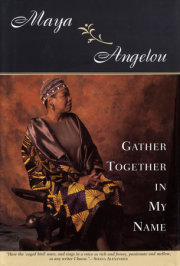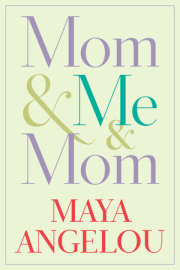chapter??1 I was mortified. A silly white woman who probably counted on her toes looked me in the face and said I had not passed. The examination had been constructed by morons for idiots. Of course I breezed through without thinking much about it.
rearrange these letters: ACT-ART-AST
Okay. CAT. RAT. SAT. Now what?
She stood behind her make-up and coiffed hair and manicured nails and dresser-drawers of scented angora sweaters and years of white ignorance and said that I had not passed.
“The telephone company spends thousands of dollars training operators. We simply cannot risk employing anyone who made the marks you made. I’m sorry.”
She was sorry? I was stunned. In a stupor I considered that maybe my outsized intellectual conceit had led me to take the test for granted. And maybe I deserved this high-handed witch’s remarks.
“May I take it again?” That was painful to ask.
“No, I’m sorry.” If she said she was sorry one more time, I was going to take her by her sorry shoulders and shake a job out of her.
“There is an opening, though”—she might have sensed my unspoken threat—“for a bus girl in the cafeteria.”
“What does a bus girl do?” I wasn’t sure I could do it.
“The boy in the kitchen will tell you.”
After I filled out forms and was found uninfected by a doctor, I reported to the cafeteria. There the boy, who was a grandfather, informed me, “Collect the dishes, wipe the tables, make sure the salt and pepper shakers are clean, and here’s your uniform.”
The coarse white dress and apron had been starched with concrete and was too long. I stood at the side of the room, the dress hem scratching my calves, waiting for the tables to clear. Many of the trainee operators had been my classmates. Now they stood over laden tables waiting for me or one of the other dumb bus girls to remove the used dishes so that they could set down their trays.
I lasted at the job a week, and so hated the salary that I spent it all the afternoon I quit.
chapter??2 “Can you cook Creole?”
I looked at the woman and gave her a lie as soft as melting butter. “Yes, of course. That’s all I know how to cook.”
The Creole Café had a cardboard sign in the window which bragged: COOK WANTED. seventy-five dollars a week. As soon as I saw it I knew I could cook Creole, whatever that was.
Desperation to find help must have blinded the proprietress to my age or perhaps it was the fact that I was nearly six feet and had an attitude which belied my seventeen years. She didn’t question me about recipes and menus, but her long brown face did trail down in wrinkles, and doubt hung on the edges of her questions.
“Can you start on Monday?”
“I’ll be glad to.”
“You know it’s six days a week. We’re closed on Sunday.”
“That’s fine with me. I like to go to church on Sunday.”
It’s awful to think that the devil gave me that lie, but it came unexpectedly and worked like dollar bills. Suspicion and doubt raced from her face, and she smiled. Her teeth were all the same size, a small white picket fence semicircled in her mouth.
“Well, I know we’re going to get along. You a good Christian. I like that. Yes, ma’am, I sure do.”
My need for a job caught and held the denial.
“What time on Monday?” Bless the Lord!
“You get here at five.”
Five in the morning. Those mean streets before the thugs had gone to sleep, pillowing on someone else’s dreams. Before the streetcars began to rattle, their lighted insides like exclusive houses in the fog. Five!
“All right, I’ll be here at five, Monday morning.”
“You’ll cook the dinners and put them on the steam table. You don’t have to do short orders. I do that.”
Mrs. Dupree was a short plump woman of about fifty. Her hair was naturally straight and heavy. Probably Cajun Indian, African and white, and naturally, Negro.
“And what’s your name?”
“Rita.” Marguerite was too solemn, and Maya too rich-sounding. “Rita” sounded like dark flashing eyes, hot peppers and Creole evenings with strummed guitars. “Rita Johnson.”
“That’s a right nice name.” Then, like some people do to show their sense of familiarity, she immediately narrowed the name down. “I’ll call you Reet. Okay?”
Okay, of course. I had a job. Seventy-five dollars a week. So I was Reet. Reet, poteet and gone. All Reet. Now all I had to do was learn to cook.
chapter??3 I asked old Papa Ford to teach me how to cook. He had been a grown man when the twentieth century was born, and left a large family of brothers and sisters in Terre Haute, Indiana (always called the East Coast), to find what the world had in store for a “good-looking colored boy with no education in his head, but a pile of larceny in his heart.” He traveled with circuses “shoveling elephant shit.” He then shot dice in freight trains and played koch in back rooms and shanties all over the Northern states.
“I never went down to Hang’em High. Them crackers would have killed me. Pretty as I was, white women was always following me. The white boys never could stand a pretty nigger.”
By 1943, when I first saw him, his good looks were as delicate as an old man’s memory, and disappointment rode his face bareback. His hands had gone. Those gambler’s ?fingers had thickened during the Depression, and his only straight job, carpenting, had further toughened his “money-makers.” Mother rescued him from a job as a sweeper in a pinochle parlor and brought him home to live with us.
He sorted and counted the linen when the laundry truck picked it up and returned it, then grudgingly handed out fresh sheets to the roomers. He cooked massive and delicious dinners when Mother was busy, and he sat in the tall-ceilinged kitchen drinking coffee by the pots.
Papa Ford loved my mother (as did nearly everyone) with a childlike devotion. He went so far as to control his profanity when she was around, knowing she couldn’t abide cursing unless she was the curser.
“Why the sheeit do you want to work in a goddam kitchen?”
“Papa, the job pays seventy-five dollars a week.”
“Busting some goddam suds.” Disgust wrinkled his face.
“Papa, I’ll be cooking and not washing dishes.”
“Colored women been cooking so long, thought you’d be tired of it by now.”
“If you’ll just tell me—”
“Got all that education. How come you don’t get a goddam job where you can go to work looking like something?”
I tried another tack. “I probably couldn’t learn to cook Creole food, anyway. It’s too complicated.”
“Sheeit. Ain’t nothing but onions, green peppers and garlic. Put that in everything and you got Creole food. You know how to cook rice, don’t you?”
“Yes.” I could cook it till each grain stood separately.
“That’s all, then. Them geechees can’t live without swamp seed.” He cackled at his joke, then recalled a frown. “Still don’t like you working as a goddam cook. Get married, then you don’t have to cook for nobody but your own family. Sheeit.”
Copyright © 2009 by Maya Angelou. All rights reserved. No part of this excerpt may be reproduced or reprinted without permission in writing from the publisher.



















